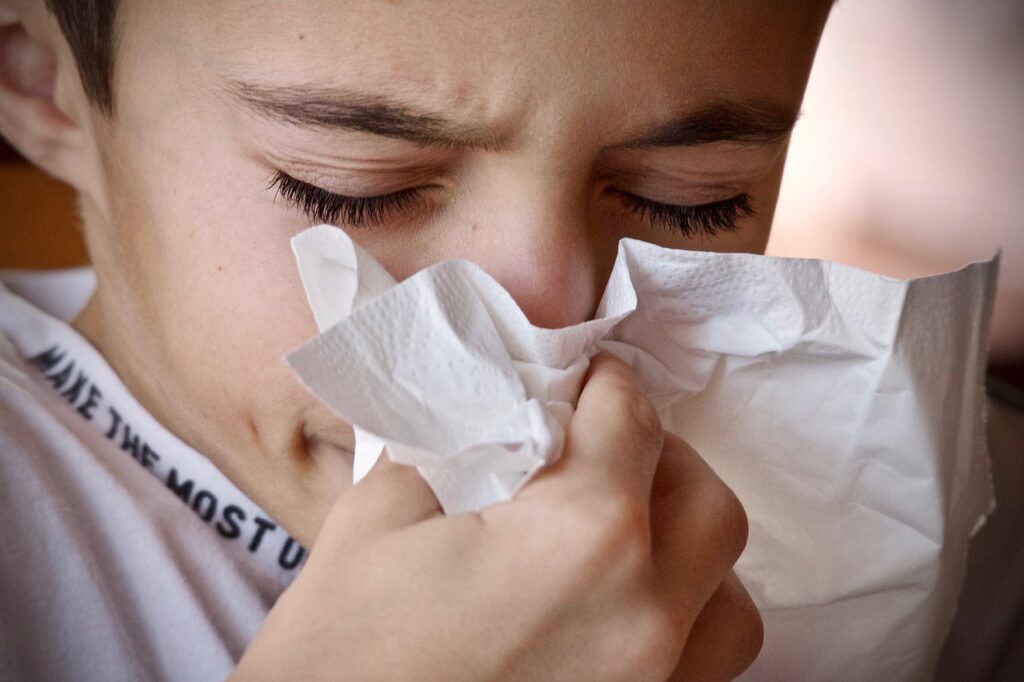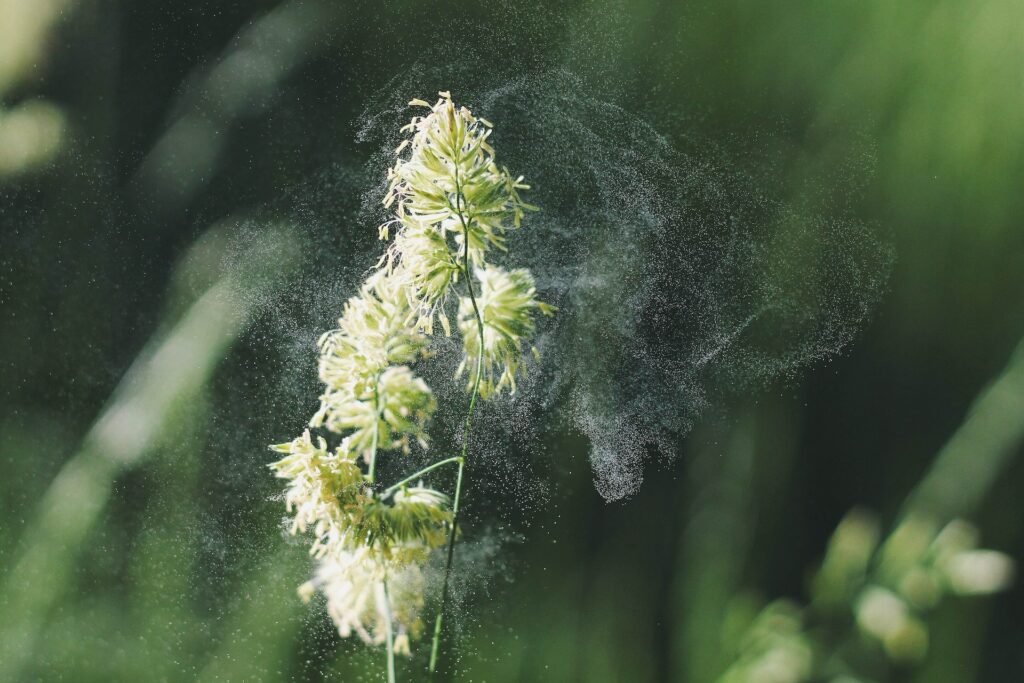Allergy is a hypersensitivity to a specific substance known as an allergen. When this allergen comes into contact with the immune system, usually through the air, ingestion or contact, inflammation occurs in the respiratory tracts, skin or digestive tract.
This reaction generates a series of very characteristic symptoms of varying intensity. The most common are sneezing, itchy nose or eyes, runny nose, nasal congestion, hives, swelling, or difficulty breathing.
Minimize exposure to the allergen both indoors and outdoors
The best way to prevent allergy is to avoid or minimize contact with the allergy-causing allergen.
Pollen is one of the most common and is found in the air, especially during the spring and summer. To avoid this, you can check pollen levels in your area and go out less when they are high or stay indoors. Other measures include:
- Wear a face mask or sunglasses when outdoors. If you are driving, close the car windows.
- When you get home, shower and change cloths to get rid of allergens.
- Do nasal washes with saline water or saline, which help clear the nasal passages of dust, pollen, and mucus, and reduce swelling and congestion. You can do them with a syringe, irrigator, or nasal spray.
- Keep the air clen at home. To prevent pollen or other allergens from entering your home, you can use air filters or purifiers that remove particles from the air and maintain adequate humidity (between 40% and 60%). Some indoor plants can help you purify and maintain humidity. Decorate your home with areca palms, Boston ferns, English ivy or ficus.
- It is also important to ventilate the house well, but only in the morning, when the presence of pollen is lower.
- During these times of the year, hang clothes indoors to prevent them from coming into contact with irrigating substances.
- Minimize, as much as possible, contact with fur-bearing animals.
- Keep your house free of dust. Clean the house often and avoid surfaces that collect dust and volatile substances such as carpets, stuffed animals, etc.

Help yourself with medication, natural supplementation and homeopathy
If you take any medication for your allergy, always consult your doctor or pharmacist before adding any other substance; this will avoid unwanted interference with the medication.
Try natural remedies
There are some natural substances that can have an antihistamine, anti-inflammatory or decongestant effect to complement medical allergy treatment. Some examples are honey, ginger, turmeric, green tea, or chamomile, many of them present in our nutraceuticals.
Use homeopathic medicines
These can help prevent or alleviate your symptomatology without the dreaded side effects. Avoid self-diagnosis, rather consult a homeopathic doctor for advice on the appropriate medication and dosage.
See your doctor in moderate or severe cases of allergy
Sometimes, allergy can become more severe and go from a simple nuisance to a serious health problem. If the symptoms are very intense or do not improve with these tips, you should see your doctor for a diagnosis and prescription of the most appropriate treatment for your case. It may be necessary to take antihistamines, corticoids, bronchodilators, or allergy shots.
We hope these tips will be useful to improve your allergy symptoms. In Lanier Pharma we know that each person is different, so although we provide you with some tips to help you with your allergy symptoms, we advise you to stick to what works best for you personally and always follow your doctor’s instructions.



